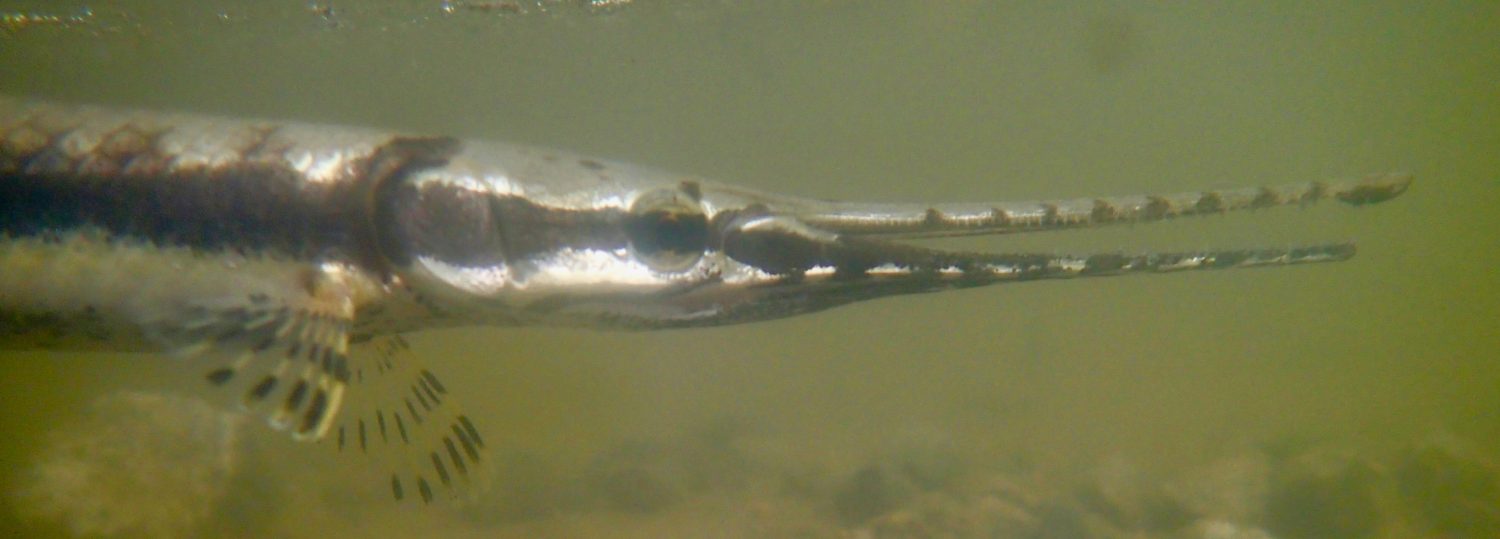
Research Labs
Julie Balko, Kate Bailey, and Lysa Posner Lab of Aquatic Animal Anesthesia, Analgesia, and Euthanasia
Our laboratory has a clinical focus and, thus, concentrates on aquatic animal species commonly found as household pets, in aquaria or zoological facilities, or at research or rehabilitation institutions, including fish, reptiles, and amphibians. We have two main objectives: our first aim is to provide evidence-based refinement of anesthetic and analgesic best practices for aquatic animal species; our second aim is to objectively evaluate and advance euthanasia methodology in aquatic animal species.
Greg Cope Lab of Aquatic Ecotoxicology
We work in conjunction with biologists, environmental scientists, practitioners and others to find ways to enhance sustainability in aquaculture and coastal systems. Our work includes focus on human health (e.g. treatment to improve food safety of shellfish for human consumption) and animal health (use of prebiotics and probiotics to enhance immune function in finfish). Overall we aim to develop smarter, safer, sustainable systems via aquacultural engineering approaches.
Craig Harms Lab of Marine Animal Health
My areas of interest include pharmacology, clinical pathology, anesthesia, analgesia, and surgery of invertebrates, fishes, amphibians, and reptiles. I am also interested in wildlife conservation and work to address the anthropogenic impacts on wildlife in North Carolina and the Galápagos Islands.
Kurt Marsden Lab of Behavioral Neuroscience
The overarching goal of the Marsden lab is to better understand the processes underlying neurological disease by uncovering the genetic and neural circuit basis of behavior and behavioral plasticity. Using zebrafish as our model system, we take a variety of experimental approaches including gene expression analysis, high-throughput behavioral testing, 3- and 4-D analysis of neural circuits, simultaneous imaging of neuronal activity and behavior, and optogenetic techniques.
Nanette Nascone-Yoder Lab of Morphogenesis and Organogenesis
The goal of our research is to understand the biological mechanisms that control the development of left-right asymmetry at the organ level, in order to illuminate the causes of birth defects. We are investigating LR asymmetric organ development at multiple scales, including studies of cell- and tissue-level morphogenesis in frogs and DNA sequence analyses from human patients.
Ben Reading Lab of Applied Ecology
NC State University is the sole world source of domesticated striped bass in the world and the fish are bred specifically for culture at university field laboratory facilities. This program also directly interfaces with the aquaculture industry, state and federal natural resource agencies, and the USDA National Animal Genome Program.
David Reif Lab of Bioinformatics & Environmental Health
The overarching goal of research in the Reif Lab is to understand the complex interactions between human health and the environment. To accomplish this goal, we focus on developing bioinformatical/statistical methods, visual analytics, experimental designs, and software for the integrated analysis of high-dimensional, multi-scale data from diverse sources. We collaborate with zebrafish labs to generate data related to high-throughput screening (HTS) of environmental chemicals for developmental and neurobehavioral effects and gene-environment interactions (GxE).
Martha Burford Reiskind Lab of Conservation Genetics
…
Reade Roberts Lab of Evolutionary Genetics
Research in the Roberts laboratory examines the genomic basis of adaptation and speciation, with focus on dietary adaptation, host-microbiota interactions, sex determination and sex differences, and complex behavior. We utilize a broad range of approaches to examine genotype and phenotype, including genetic mapping in families and natural populations, comparative genomics, metagenomics, gene expression analysis, and developmental biology techniques. While our basic biology work is largely guided by evolutionary questions, it promises to ultimately impact our understanding of vertebrate molecular genetics and development.
Jeff Yoder Lab of Comparative Immunology
The overall focus of the Yoder Lab is on identifying novel mediators of innate immunity. My lab uses the zebrafish as a model for identifying novel mediators of immunity and for examining the immunotoxicological effects of environmental chemicals. We are also using comparative genomics and phylogenetic approaches to investigate the molecular mechanisms that drive diversity in immune receptor gene families in ray-finned fish.
